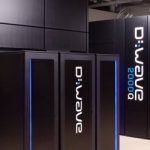Western democracies craft alliance on quantum technology

(ScienceBusinessNet) European countries, the US, Canada, Australia and Japan are building a quantum technology alliance of democracies – notably excluding China from a key global forum on this critical area of research.
The most recent meeting of the group, held in Washington DC last week, discussed setting up joint research calls for quantum projects, and strategised about the risks of other countries establishing supply chain monopolies over quantum computer components.
The group could still expand to include other countries, but it is explicitly limited to a club of states with democratic values, opening up a geopolitical fault line in scientific research. “We’re trying to create a trusted community with like-minded nations,” said Freeke Heijman, who represented the Netherlands at the Washington DC meeting on 5-6 May, and is co-founder of Quantum Delta NL, a body trying to build a national quantum ecosystem. “It’s about sharing certain values that make it easier to collaborate, and we see values include things like a level playing field, fair competition, but also democratic values, privacy, things like that,” she said.
The group, which also includes Denmark, Finland, France, Germany, Sweden, Switzerland and the UK could still expand in the future, said Sabrina Maniscalco, professor of quantum information at the University of Helsinki, who represented Finland.
“To have certain discussions that could be really important for the national security of several countries requires to start with the so-called like-minded countries, where we have shared principles like democracy, trustworthiness, inclusion and diversity,” she said.
The countries involved want to better understand and coordinate each other’s national quantum initiatives, which have proliferated in recent years as governments have cottoned on to the potential of the field.
There are also plans for the countries involved to launch join research calls. Involving all states would be “very hard” initially, Heijman said, so the plan is to start with calls by two or three countries acting together.
Supply chains for quantum computer components are also under discussion. For example, some models use the rare isotope helium-3 to cool down to ultra-low temperatures.
Also on the agenda is standards setting in quantum technologies, for example, measuring exactly how powerful existing quantum computers truly are, given that they are still plagued by errors and noise that can confound simple measurements of power.
Another key priority is training up a workforce in such a nascent area, like engineers who can programme in new quantum languages.
<https://sciencebusiness.net/news/western-democracies-craft-alliance-quantum-technology>
Sandra K. Helsel, Ph.D. has been researching and reporting on frontier technologies since 1990. She has her Ph.D. from the University of Arizona.



















